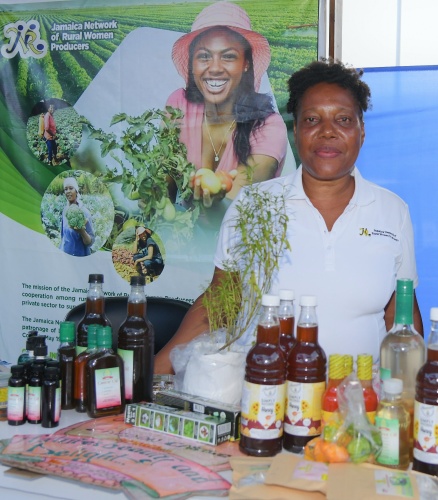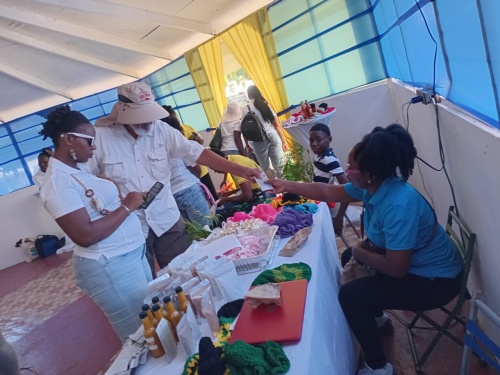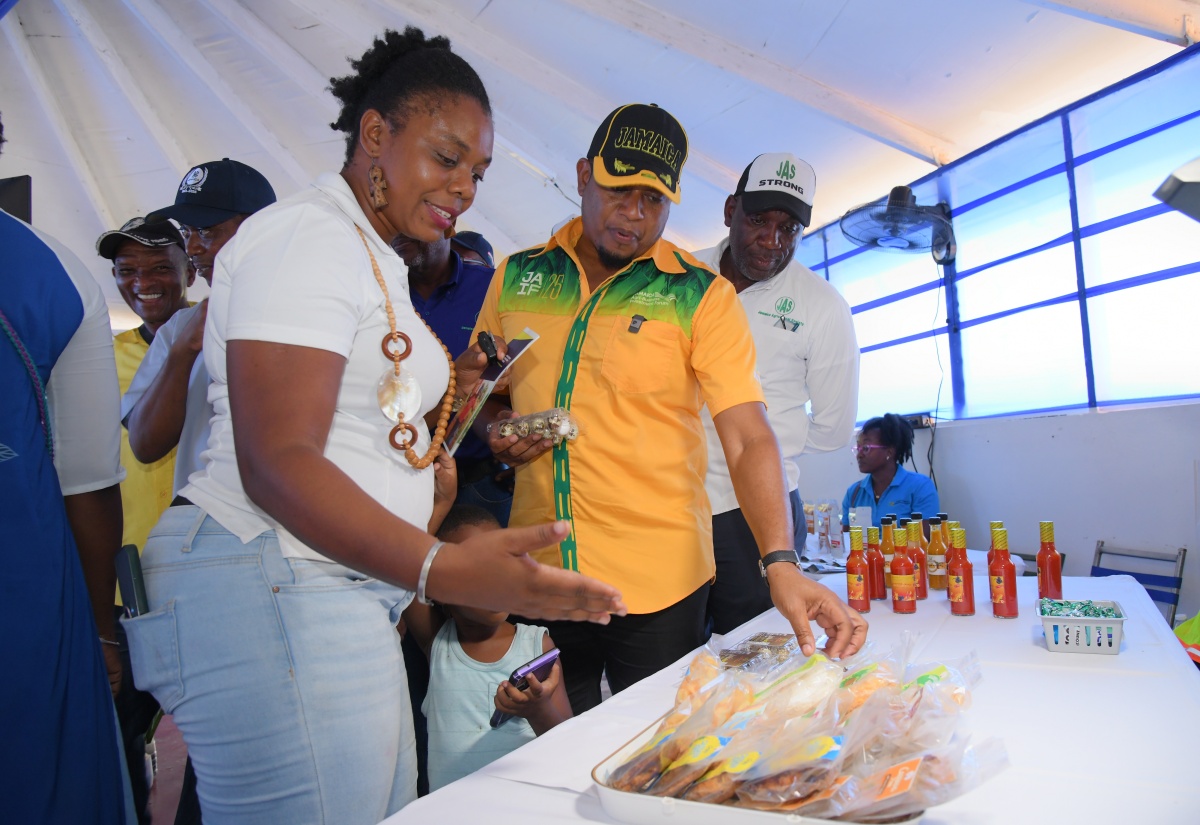Rural Women in Agriculture Receive Strong Support from JNRWP
By: , August 25, 2025The Full Story
While they make up at least one third of Jamaica’s farmers and contribute significantly to the nation’s food security, rural women in agriculture are facing a unique set of challenges that limit their productivity and impact their potential within the sector.
“The mere fact that we are women, that in itself is a challenge. Usually, agriculture is perceived as a man’s job. Other challenges include [access to] startup capital, access to market, access to training and, of course, access to land,” shares President of the Jamaica Network of Rural Women Producers (JNRWP), Tamisha Lee.
The JNRWP, established in May 1999, is one of the organisations on the front line championing the voices of female farmers through advocacy, and fostering economic independence and sustainable livelihoods.
This organisation provides comprehensive training and resources to develop members’ agro-businesses and micro enterprises.
Among its network of more than 1,000 women are both new and experienced farmers, some in traditional sectors, such as poultry and tubers, others growing crops such as sweet corn and kale, which are newer to the Jamaican market.
One JNRWP member, Latoya Rattray-Ellis, who operates farms in St. Catherine and Clarendon, growing crops such as sweet corn, yellow yam, Scotch bonnet peppers, carrot and cabbage, points out that while she has seen success in agriculture, her endeavours have not been without challenges.
“The biggest challenge that I face as a farmer is to find and to keep good employees,” she tells JIS News.

Mrs. Rattray-Ellis, who has been farming on a commercial scale since 2019, shares that another challenge faced by many in the sector is access to capital.
This is a challenge also faced by Madge Wright-Corniffe, who operates a farm in Cacoon Castle, Hanover.

Mrs. Wright-Corniffe explains that accessing loan services from financial entities has proven to be difficult for her.
“What they offer is just not good enough. For instance, you take a business plan to them and the business plan has a million dollars…what they offer you is like $200,000 or $300,000. That’s cutting more than three quarters of the plan,” she tells JIS News.
Both women point out that the JNRWP has been critical in helping them overcome the capital challenge.
Mrs. Rattray-Ellis recalls, for instance, that Hurricane Beryl, which passed over the island in June 2024, decimated her farm, causing her to lose all the crops she had in the fields, and the Network stepped in to assist.
She explains that the Network’s President lobbied multiple agencies on behalf of impacted farmers, and they were able to receive significant support from the Red Cross and the United Nations Development Programme (UNDP) Livelihoods Recovery Project.
“I got the support to plant back some Irish potato. Two thousand hills of yams were damaged for me, I got the support to plant back 500 hills, and I know from that 500 hills, once I reap, I can go back up to where I was pre-Hurricane Beryl. Now, if I were not a part of that group, I would not be able to get the support,” Mrs. Rattray-Ellis says.
Meanwhile, Mrs. Wright-Corniffe expresses similar sentiments, pointing out that the JNRWP has supported her and other ladies in her community with grants to purchase necessary inputs and equipment for their farms.
For her part, President Lee tells JIS News that 53 women benefited under the UNDP Livelihoods Recovery Project.
“Some of our members, they would have registered with the parametric insurance, and this allowed them to be protected against hurricanes, flooding and all the natural disasters that they have to confront,” Ms. Lee says.
For her part, Claudine Lattery, a farmer based in West Rural St. Andrew, where land slippage is common, is one of the women who received coverage for her farm under the insurance scheme.
“The Network has been awesome. The first support I got was the insurance for my farm. That protects me from droughts, hurricanes… and I am very appreciative for it because I know that if we should get any form of disaster, then my farm is covered, and I will be compensated,” she tells JIS News.
“The Network also supports us with workshops, seminars or trainings. We are encouraged and we are often given the opportunity to go and get training in different areas like poultry farming, ruminant farming, every little area of farming,” Mrs. Lattery adds.

The Network’s President confirms that providing ongoing training for members is a key pillar for the JNRWP.
“These trainings include financial literacy. We [also] provide training on gender-based violence, because a lot of our women in rural communities, they are most vulnerable. A lot of them are overly stressed, so we do engage them in mental health training, providing them with information regarding where they can go should they need assistance. Other training includes climate-smart agricultural practices, and we also do disaster risk management,” Ms. Lee outlines.
With the help of the Network and armed with the knowledge they receive from the varied training programmes, JNRWP members have been able to grow their farms substantially.
Several members showcased their products at the recent Denbigh Agricultural, Industrial and Food Show in Clarendon.
The JNRWP President notes that the entity transported 250 of its members to the event, several of whom displayed items ranging from quail eggs and seasonings to natural soaps and castor oil.
“This year, Denbigh was a major success. The ladies would have generated income and, of course, they would have networked and they would have learned about the different technology that exists in the sector and also the different services and opportunities that are available for them to exploit,” Ms. Lee explains.
She notes that while Jamaica’s women in agriculture still have a far way to go, the successful showing at Denbigh is proof that with the right support, rural female farmers can thrive.
“I think we have made significant progress, and it is important for us to celebrate this progress, no matter how small we think that it is. We are making positive impact in the lives of our women across Jamaica. And we’re building an army of women who will effect the change that is needed to build a strong food system,” Ms Lee emphasises.




